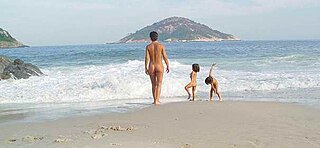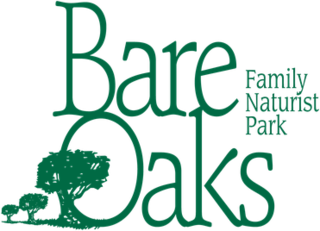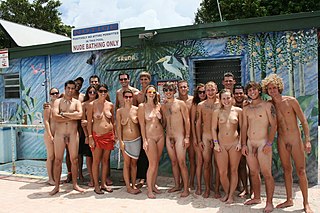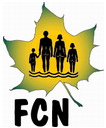
Naturism is a lifestyle of practicing non-sexual social nudity in private and in public; the word also refers to the cultural movement which advocates and defends that lifestyle. Both may alternatively be called nudism. Though the two terms are broadly interchangeable, nudism emphasizes the practice of nudity, whilst naturism highlights an attitude favoring harmony with nature and respect for the environment, into which that practice is integrated. That said, naturists come from a range of philosophical and cultural backgrounds; there is no single naturist ideology.

British Naturism is a members organisation with both individual and organisation members. It promotes naturism in the United Kingdom, and it is recognised by the International Naturist Federation as the official national naturist organisation in that country.
The International Naturist Federation (INF) or Fédération naturiste internationale (FNI) or Internationalen Naturisten Föderation (INF) is the global umbrella organisation representing official national naturist societies.

The American Association for Nude Recreation (AANR) is a naturist organization based in the United States.

Freikörperkultur (FKK) is a social and health culture that originated in the German Empire; its beginnings were historically part of the Lebensreform social movement in the late 19th century. Freikörperkultur, which translates as free body culture, includes both the health aspects of being naked in light, air and sun and an intention to reform life and society. It is partly identified with the culture of nudity, naturism and nudism in the sense of communal nudity of people and families in leisure time, sport and everyday life.
Gay naturism or LGBT naturism concerns a lifestyle of gay people in which nudity, especially in a communal context, is viewed as natural, positive and healthy. While naturist clubs and resorts in the United States date back to the 1930s, gay naturist organizations did not emerge until the early 1980s. Separate from official naturist clubs, gay individuals have long congregated in locally-known gay beaches in many countries, especially in Europe and North America.
The Deutscher Verband für Freikörperkultur represents the interests of organized supporters of the Freikörperkultur in Germany. The DFK is a member of the German Olympic Sports Confederation (DOSB) as an association with special tasks for popular sports in nude recreation. In addition, the DFK represents its members at the international level in the International Naturist Federation (INF), which also sees itself as representing the interests of non-organized naturists.
The Fédération Québécoise de Naturisme (FQN) is the official International Naturist Federation (INF) representative for the province of Quebec and for French-speaking Canada.
The FQN–FCN Union is the official representative organization for Canada in the International Naturist Federation (INF). It was created by the French-language Fédération Québécoise de Naturisme (FQN) and the English-language Federation of Canadian Naturists (FCN) because the international body recognizes only one naturist organization per country.

A nude beach, sometimes called a clothing-optional or free beach, is a beach where users are at liberty to be nude. Nude beaches usually have mixed bathing. Such beaches are usually on public lands, and any member of the public is allowed to use the facilities without membership in any movement or subscription to any personal belief. The use of the beach facilities is normally anonymous. Unlike a naturist resort or facility, there is normally no membership or vetting requirement for the use of a nude beach. The use of nude beach facilities is usually casual, not requiring pre-booking. Nude beaches may be official, unofficial, or illegal.

Bare Oaks Family Naturist Park is a naturist resort located in southern Ontario, about 40 kilometres (25 mi) from Toronto. It encompasses typical amenities for day users, 110 serviced campsites, five cabins, and five guest rooms. The club is situated on 50 acres (20 ha) of privately owned, forested land at the edge of the Oak Ridges Moraine, within the Ontario Greenbelt. Harrison Creek borders the northern boundary while the Black River bisects the property. There are also two ponds and a small lake.
In Canada, topfreedom has primarily been an attempt to combat the interpretation of indecency laws that considered a woman's breasts to be indecent, and therefore their exhibition in public an offence. In British Columbia, it is a historical issue dating back to the 1930s and the public protests against the materialistic lifestyle held by the radical religious sect of the Freedomites, whose pacifist beliefs led to their exodus from Russia to Canada at the end of the 19th century. The Svobodniki became famous for their public nudity: primarily for their nude marches in public and the acts of arson committed also in the nude.
Organised naturism in Portugal existed from around 1920, but was suppressed until 25 April 1974. The FPN - “Federação Portuguesa de Naturismo” – was founded on 1 March 1977, at a meeting in Lisbon. The oldest and most representative club in the Portuguese Naturist Federation, is the Clube Naturista do Centro, founded on 20 November 1988.
Naturism has been active in France since 1920.
Naturism is a cultural and social movement practicing, advocating and defending social nudity in private and in public. It is particularly strong in Germany where it goes under the name Freikörperkultur (FKK). It refers to a lifestyle based on personal, family and/or social nudism in the "great outdoors" environment. Naturism grew out of the German Lebensreform movement and the Wandervogel youth movement of 1896, and has been adopted in many neighbouring European countries and was taken by the German diaspora to North America and other continents.

A naturist resort or nudist resort is an establishment that provides accommodation and other amenities for guests in a context where they are invited to practise naturism – that is, a lifestyle of non-sexual social nudity. A smaller, more rustic, or more basic naturist resort may be called a naturist camp.
The Wellington Naturist Club is a naturist resort located in Te Mārua, Upper Hutt, 38 kilometres (24 mi) northeast of Wellington in the North Island of New Zealand. Its 4.7 hectares of land hold facilities including a miniature golf course, volleyball court, picnic areas, spa and sauna, and extensive rhododendron gardens, with a large hall for a clubhouse. For accommodation, the resort has four lodges and over 150 campsites. The Club was founded in 1950, under the name "Wellington Sun and Health Society".







